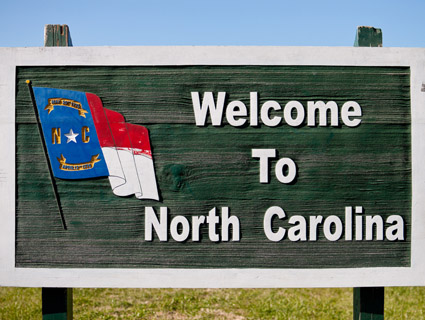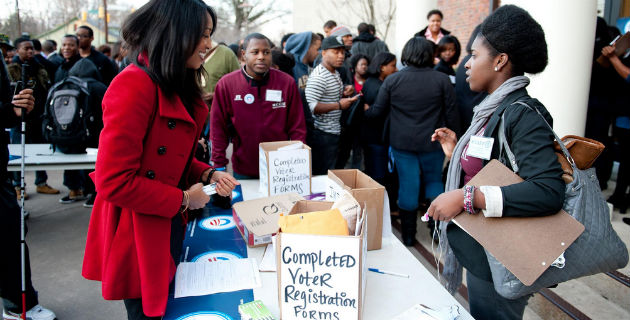
The Paramount Christian Academy in Thomasville, North Carolina.<a herf="http://www.ncpolicywatch.com/2013/12/12/taxpayer-funds-may-be-funneled-to-home-schools-through-school-vouchers/">Ricky Leung</a> NC Policy Watch
In July, the increasingly right-wing legislature in North Carolina passed a bill to divert $10 million from the public school budget to create vouchers that would give low-income students up to $4,200 a year to pay for private school tuition. Such vouchers are a popular conservative proposal for “reforming” failing public schools.
North Carolina’s vouchers, which will become available in 2014, allow public money to go to unregulated private schools that are not required to meet any educational or teacher preparation standards. In addition, thanks to the way the law was written, the money will be available to “home schools”—literally schools set up in someone’s house. Homeschooling traditionally has been done by parents. But the state recently changed its home schooling law to allow people who aren’t parents or legal guardians educate kids in a group setting. The only requirement for such schools is that the teacher have a high school diploma, that the school keep immunization and attendance records on its students, and that it give kids a national standardized test every year.
NC Policy Watch, a project of the nonprofit North Carolina Justice Center, went out and found some interesting “home schools” that may be eligible for taxpayer funding next year. The Paramount Christian Academy has one teacher who teaches her granddaughter, a neighbor’s kid, and one special-needs student. It uses textbooks from Bob Jones University and A Beka Book, whose offerings we’ve chronicled here at Mother Jones.
As Deanna Pan explained last year, such instructional materials teach Bible-based “facts”—such as the existence of the Loch Ness Monster. The materials also suggest that the Ku Klux Klan “tried to be a means of reform, fighting the decline in morality and using the symbol of the cross” and that dinosaurs and humans lived at the same time, for instance. Gay people are singled out for special scorn in one Bob Jones teachers’ guide, which says that they “have no more claims to special rights than child molesters or rapists.” And math haters—these books are for you. The company writes on its website:
Unlike the ‘modern math’ theorists, who believe that mathematics is a creation of man and thus arbitrary and relative, A Beka Book teaches that the laws of mathematics are a creation of God and thus absolute…A Beka Book provides attractive, legible, and workable traditional mathematics texts that are not burdened with modern theories such as set theory.
These sorts of materials are now allowed in Louisiana’s voucher program as well, but North Carolina seems unique in diverting taxpayer dollars both to schools that teach wacky Christian curricula and to basically anyone who claims to be a “home school.” The state only has a single employee dedicated to overseeing its existing 700 private schools, which get visited on average once every three years, according to NC Policy Watch, making the state’s ability to regulate home schools highly questionable. That’s not the sort of data point that supports the idea that vouchers will help improve school performance of low-income kids, especially when you consider the experience of other states.
In the District of Columbia, the Washington Post found that vouchers were going to unaccredited schools run by the Nation of Islam and one organized around “Suggestopedia,” a learning philosophy developed by a Bulgarian psychotherapist that emphasizes stretching and meditation. Not surprisingly, a US Department of Education study found no evidence that vouchers improved students’ test scores. In Milwaukee, a city that pioneered the voucher program, voucher students perform far worse than regular public school students in both math and reading, and the voucher schools have been a hotbed of criminal activity. One school founder used his voucher money to buy himself some nicer rides—two new Mercedes Benz cars—while inappropriately cashing thousands of dollars worth of checks written out to families that didn’t actually attend the school. Florida voucher schools have been plagued with similar problems of fraud.
But North Carolina seems en route to set a new low for voucher programs by allowing even more dubious “home schools” to receive tax payer funding. That prospect seems to trouble even some of the voucher law’s ardent supporters. Rep. John Hardiser (R) told NC Policy Watch, “I think it’s great if these [private] schools are governed the right way. But I don’t think anyone should be able to start a home school, call it a private school and be able to receive Opportunity Scholarships…most of us want these schools to be held accountable.”

















